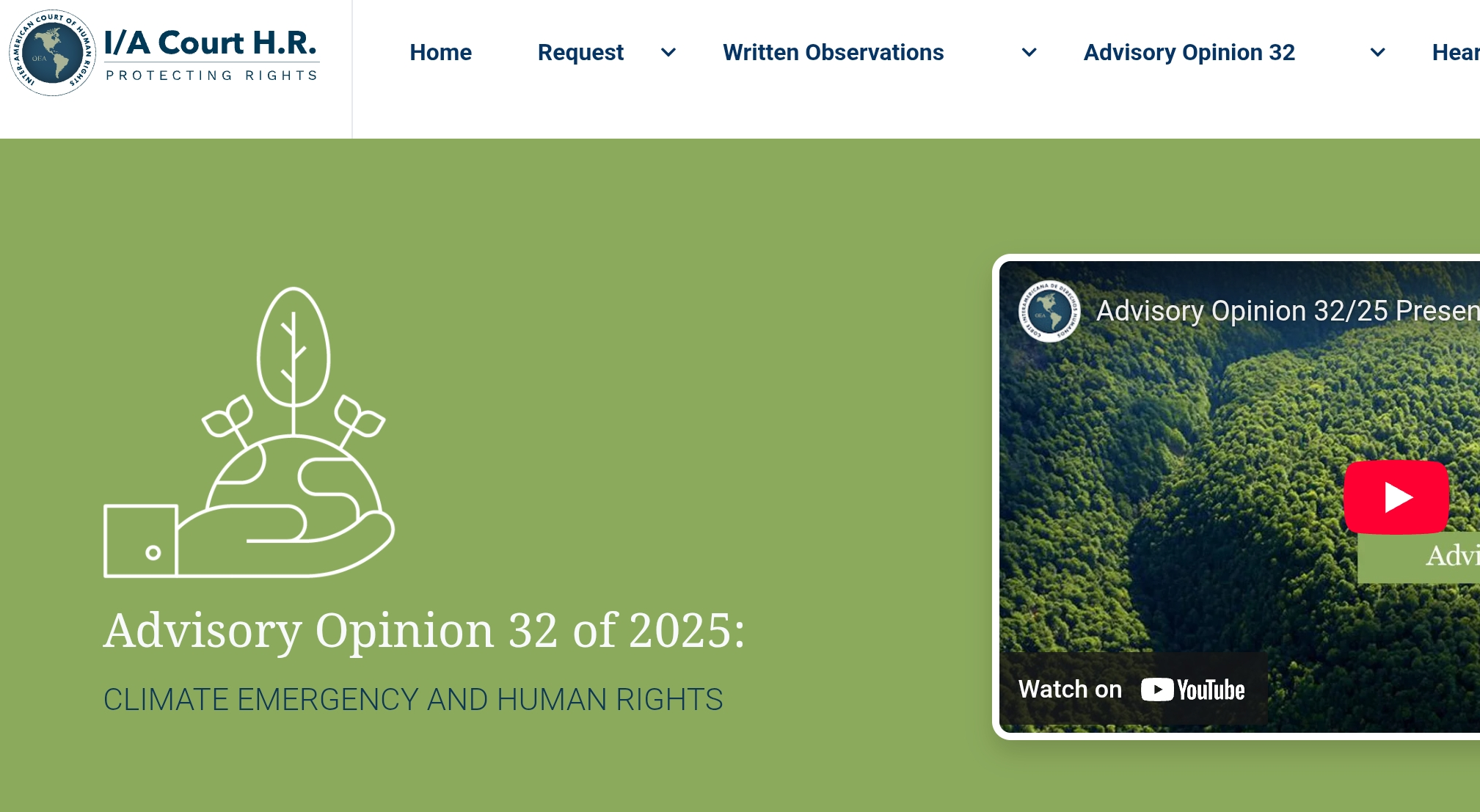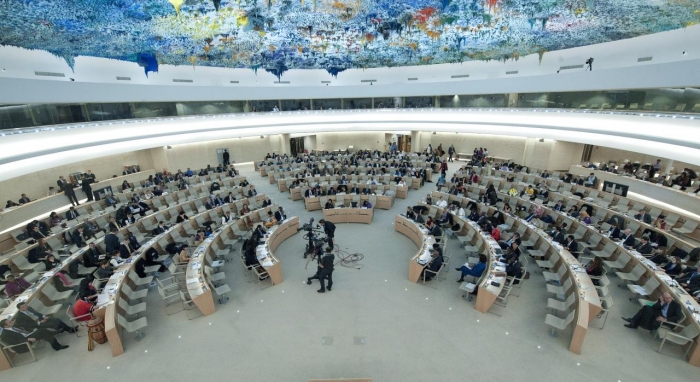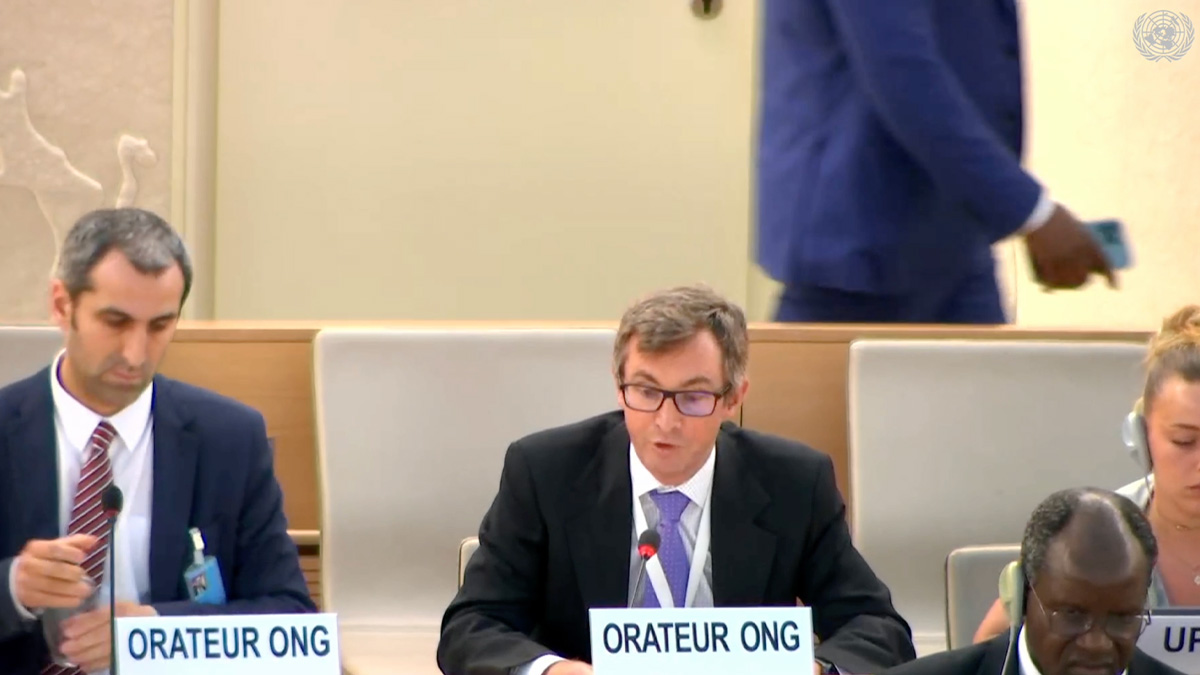Civil society participation is a cornerstone of the Human Rights Council. Without adequate consultation, decisions on issues relating to participation and procedure will be taken without full consideration of all key stakeholders, to the detriment of the Council’s effectiveness.
We join States in recognising the need to address the Human Rights Council’s growing demand for resources, time, and space. We are concerned, however, that over the past five years, the reduction in speaking times and opportunities to engage with the Council, particularly for civil society organisations, have not led to substantive improvement in reducing the length of the sessions. As a general principle, we consider that the Council should be provided with the resources, and should remain in session, for the time that is necessary to properly deal with all relevant human rights issues and situations of concern.
We regret that the President’s statement renews, for yet another year, the decision not to hold general debates during its June session without adequate evaluation of the impact of the measures contained in previous PRSTs on the Council’s workload and resources. General Debates provide a critical opportunity to address issues that should be on the Council agenda, ensuring that it remains relevant and responsive.
We call on the Human Rights Council bureau and the HRC member states to:
- Conduct a thorough impact assessment based on data to evaluate the measures already undertaken and any future measures proposed, including their impact on civil society participation.
- Reinstate General Debates in June and end the practice of capping General Debates speaking slots for civil society, allowing unrestricted participation both in person and via pre-recorded video statements.
- Actively advocate for the maintenance of hybrid modalities (remote participation in all debates and informal consultations) for all Observers of the Council (states and civil society organisations with ECOSOC status) with counterparts in New York.
- Address the chronic underfunding of the UN human rights pillar by providing proper funding for human rights and the ability of the UN system to respond to human rights violations and to ensure States adopt human rights-compliant policies and practices at all levels.
We urge States to consider addressing the duplication of initiatives, by adopting objective criteria and parameters to assess when initiatives are repetitive. The objective rights-based criteria, which States from all regions have committed to apply on whether a situation merits the HRC’s attention, should be used for country-specific resolutions.
As we have cautioned many times, removing General Debates from the June sessions since 2020, coupled with the de facto capping of General Debates in the March and September sessions, has critically impacted the opportunities offered for civil society engagement, particularly women’s rights, LGBTIQ+ organisations, children and youth-led organisations and other defenders.
Additionally, as it is currently implemented, the practice of granting civil society the average number of slots based on the number of organisations who speak during General Debates has led to a gradual decrease in speaking slots for General Debates under all agenda items. If kept in place, this practice enforces a spiralling downward trend in the averages with each session. The practice of capping the slots for civil society during General Debates was meant to be a temporary measure to address the uncertainty posed by the new implementation of participation exclusively via pre-recorded video statements at a time when in-person participation was not possible. Open-ended participation should be enabled for pre-recorded video statements and in-person civil society engagement during all General Debates.
We reiterate our call for the Human Rights Council and related mechanisms to consolidate the possibility of participation via live online interventions coupled with in-person participation. We urge States to actively engage with their counterparts in New York to ensure the mandate and budget are in place to allow the consolidation of said modalities.
Remote participation provides opportunities to overcome barriers faced by civil society organisations, including, but not limited to, denial of visas, resource challenges, travel costs, environmental considerations, and accessibility for people with disabilities.
Inclusive participation of civil society actors helps ensure that the HRC is informed and responsive to human rights priorities and needs on the ground. Hybrid modalities enable the engagement of organisations based outside Geneva, as well as under-resourced civil society actors. It ensures access for victims, survivors, and their families and for child and youth-led movements and gender/sexual diverse advocates, who are otherwise rarely heard.
Geneva is the central hub for human rights conferences at the UN level, and actions should be taken to mitigate its contributions to the climate crisis. While in-person meetings are necessary, the possibility of intervention through secure remote participation, both in formal and informal meetings, allows the UN to align its practices with the urgency of reducing carbon emissions and to lead by example, which can only result in greater engagement and ownership of norms and standards.
We wish to remind all States that civil society does not “shrink” in isolation. It is reduced by overlooking civil society organisations in important conversations and debates and censoring and silencing dissent. Meaningful participation is an integral part of human rights. An efficient and effective HRC is a Council that responds to the issues raised by demands, needs and concerns of human rights defenders, activists, victims and survivors, and their families. All voices matter. Space for civil society must be promoted and safeguarded at the HRC so they can be heard and the Council can be fully informed of human rights priorities and needs on the ground.
Finally, we regret the increase in the incidence and severity of cases of reprisals and intimidation related to cooperating with the UN. This is the primary responsibility of States but the President and Bureau also have a role and duties in this regard. We reiterate our consistent calls on the HRC Presidency to actively follow up on allegations, maintain a publicly accessible register of cases on the extranet, including allegation letters if victims consent, and documentation of any other actions taken, and present a summary of cases – including action taken and the status of the case – at every session. When the response of the State concerned is insufficient, we request that the case be brought formally to the Council’s attention for action. Thus, ahead of the expected vote in January 2024, possibly on 10 January, to elect the Council’s President for the 18th cycle, we reiterate that the Council President should have a demonstrated commitment to addressing reprisals and a history of supporting cooperation with Council mechanisms. Any representatives of States that appear in the Secretary General’s annual reports on reprisals, particularly those States that appear to engage in a pattern or policy of reprisals, seeking the position of the Council’s Presidency raises serious concerns.
Signatories:
- Asian Forum for Human Rights and Development (FORUM-ASIA)
- Cairo Institute for Human Rights Studies (CIHRS)
- Centro de Estudios Legales y Sociales (CELS)
- CIVICUS: World Alliance for Citizen Participation
- Commonwealth Human Rights Initiative (CHRI)
- DefendDefenders (East and Horn of Africa Human Rights Defenders Project)
- Humanists International
- International Service for Human Rights (ISHR)
- Minority Rights Group International
- Sexual Rights Initiative
- International Federation for Human Rights (FIDH)




